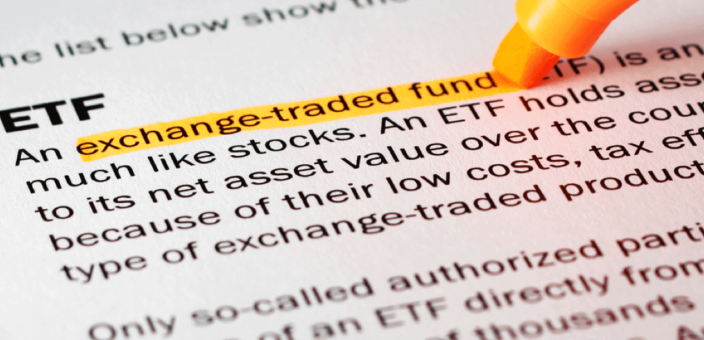Editor’s note: Charles Schwab Inc. launched the “commission-free ETF” trend in 2009 as a means to claim market share; since then, other discount brokerages have followed suit. Commission-free ETFs have come to resemble those toasters that some banks used to give away to bring customers in the door (does any bank still do that?). But “commission-free” doesn’t mean free altogether, or even cheap, as Shailesh Kumar shows in this blog. And there’s the seductive power of a commission-free ETF: who is likely to be drawn by them? Active traders, of course, who happen to be those most profitable for the brokerages, and most likely, according to research, to do damage to their own portfolios.
It would seem that the choices for ETF investors have never been better. (See Keys to Choosing a Good ETF). In addition to the wide variety of ETFs covering multitudes of sectors and indexes that are available today, these investors are also able to buy ETFs without paying any commissions at brokerages including Vanguard, Fidelity, Schwab, TD Ameritrade and Scottrade. Who can argue with zero commissions, right?
ETFs Do Have Costs — Even the Commission-Free ETFs
No investment vehicle is free. Commission-free ETFs are no exception. Every ETF comes with an expense ratio. This is the sliver of the return that stays put at the ETF provider and is not shared with the investors. If you have invested in mutual funds you are familiar with expense ratios. As an investor, you do not feel the pain of paying an expense ratio as you do not see your account debited in this amount. The money just does not show up in your account. But it is very real.
Let’s take an example. If you are a Fidelity investor, you are able to buy and sell iShare ETFs without paying any commissions. Suppose you are looking for a great Emerging Markets ETF to round out your asset allocation and you have narrowed down your choices to these two excellent offerings: iShare MSCI Emerging Market Index (EEM) and Vanguard MSCI Emerging Market ETF (VWO). They both track the MSCI Emerging Market Index but the iShare ETF (EEM) is available to you for zero commissions, while buying the Vanguard ETF will cost you $7.95/trade.
EEM carries an expense ratio of 0.68% while the expense ratio of VWO is vastly smaller, at 0.22% or about 0.46 percentage points less expensive.
Which one is the better choice? Well it all depends. You need to think about the following before you decide.
- Your investment amount: How much you are investing in the emerging market index ETF will determine how large that 0.46% differential is for you in dollar terms, and
- How often you trade or rebalance your portfolio in a year?
For example, if you are allocating $100,000 to this ETF, the 0.46% expense ratio differential amounts to $460 in extra cost that you will pay with EEM over the course of the year. If you are going to trade this ETF less than 58 times in a year, the Vanguard ETF is cheaper than the iShare ETF even if you have to pay commissions on it. ($7.95 x 58 = $461.10)
For a smaller allocation, say $10,000 your expense ratio advantage with the Vanguard ETF disappears in just 6 trades. 6 trades are quite easy to do in a year, especially if you are dollar cost averaging into your portfolio. (The expenses would be $46 a year; $7.95 x 6 = $47.70)
Some ETFs May Be Cheap But Not Liquid Enough
Since ETFs trade like a stock, there is a bid and an ask in the market. If there are not enough sellers, you might end up paying more for the shares than you should. Similarly you might lose on the sale if there are not enough buyers. If you are with a broker that offers some ETFs commission free, you might want to consider how liquid the market is in those ETFs by looking at a typical bid/ask spread in the shares. Again, this is one of those invisible costs that do not immediately come to mind when you are selecting an ETF for investment. You are in most cases better off sticking with more frequently traded ETFs, even if you end up paying a small commission.
ETFs Are Seductive and Lack of Commissions Make Them More So
ETFs have exploded in popularity in the past five years. Their lower fees and liquidity have made them an appealing alternative to mutual funds; when brokerages began offering some ETFs commission free, they became even more appealing.
Yet, the very qualities that make ETFs appealing make them potentially counterproductive for some investors. The fact that you can trade ETFs like stocks and watch your investment go up or down by the minute, encourages short-term excessive trading in some investors. This is a contrast to mutual funds, where you have to wait for the end of the day to see the change in value.
ETFs are even more seductive for day traders when those funds are commission free, because the traders can now buy and sell with impunity. A commission-free ETF may represent a cost savings during the regular rebalancing conducted by an investor with the discipline to stay focused on an asset allocation. For others, commission-free ETFs may lead to increased tinkering with asset allocations, to the detriment of long-term returns.
As the Wealthfront blog has reported, certain ETF companies are engaging in the practice of lending out the underlying shares for shorting and thereby introducing a counterparty risk. In these cases, the ETF becomes riskier than the index it tracks and a lack of commission may not be enough to justify the additional risk over buying a mutual fund that tracks the same index. This is a murky area and it is difficult to figure out the appropriate risk-reward trade off since proper disclosure requirements are not yet in place.
My conclusion: Commission-free ETFs can be tempting, but may not be right for all investors.
About the author(s)
The Wealthfront Team believes everyone deserves access to sophisticated financial advice. The team includes Certified Financial Planners (CFPs), Chartered Financial Analysts (CFAs), a Certified Public Accountant (CPA), and individuals with Series 7 and Series 66 registrations from FINRA. Collectively, the Wealthfront Team has decades of experience helping people build secure and rewarding financial lives. View all posts by The Wealthfront Team



